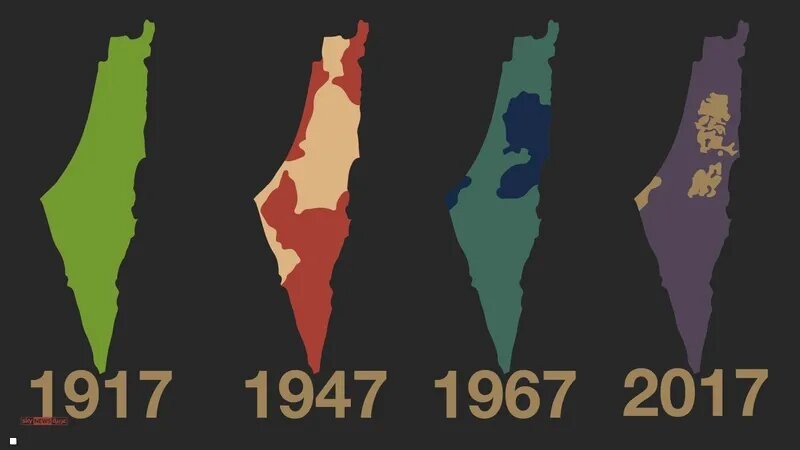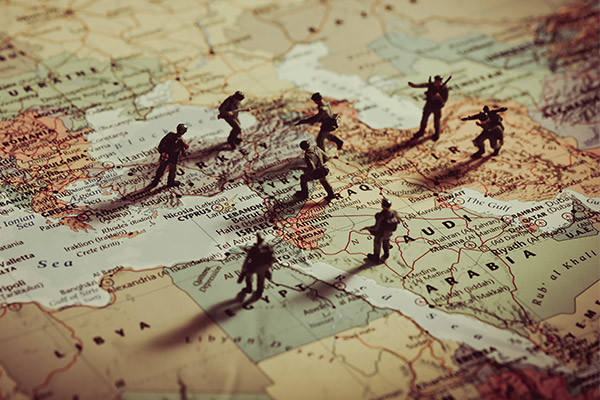Palestine: between recognition and state establishment
The increased debates in the united states and Britain, concerning how to deal with the Palestinian cause touched on the possibility of recognizing the Palestinian state. But these debates are not concerned with the fate of Palestinians or the continued security threats and erupted wars in the region. However, the leaders of these countries are trying to deal with the political repercussions of the was in Gaza at home. This is why it is important to be cautious not to settle for a limited recognition of a Palestinian state, as crucial as that may be, while leaving the establishment of the Palestinian state without genuine support.

- by Rasha Al Joundy ,
- Tuesday, 6th February, 2024
The continuation of the Israeli war on Gaza has exposed the extent of the Palestinians’ suffering under occupation. This includes Palestinians in the West Bank who face increasing Israeli settlers’ hostilities to expel them. Meanwhile, Gaza civilians are enduring continuous bombardment, a campaign of starvation, spread of diseases, bleak prospects for the future.
This constitutes an epidemic threatening the international institutions legitimacy, and thus the international order existed after the Cold War. For the United States, international institutions, especially the United Nations, are evidence of its strategic role in the existing global system. Meaning that a decline in their role is a setback for Washington, in favor of a new World-Order that serves its competitors, China and Russia.
President Biden administration is aware of the implication it is facing as a result of Gaza war policy. Especially President’s Biden decreasing popularity in opinion polls among Arab-American, Muslim-American, and African American voters who understand the suffering of Gazans as a reflection of their own history fighting racism.
The US State Department spokesperson Matthew Miller stated: Biden administration is looking into recognizing an independent Palestinian state, in coordination with a similar British stance. This should be regarded as part of a contingency plan to deal with a possibly severe political implication from Gaza war.
What does recognition of the Palestinian state in the United Nations mean?
In 1947, the United Nations General Assembly outlined in Resolution 181 a plan to partition Palestine, followed by the declaration of the State of Israel in 1948.
Recognition by the United States, Britain, and other countries in the United Nations of Palestine after more than seventy years would be a moral and diplomatic victory for Palestinians, a recognition of their existence and their human right to have their own state.
However, does mere recognition in the United Nations mean that Palestine will be established as a state with all or part of its pillars?
One must realistically consider what is expected from the international community at its current formation.
The Palestinian state will not be established with clear borders and sovereignty over its’ land, water, and sky. And, No Palestinian government will have the ability to manage an airport or seaport or benefit from the wealth in the Mediterranean Sea as long as Israeli politicians perceive an independent Palestinian state as a threat to their own state. A state whose borders have not yet been defined by anyone in Israel.
This situation perpetuates the Israeli-Palestinian conflict indefinitely, in spite of how significant the recognition of a Palestinian state is. As long as it is pursued by countries that do not yet see a strategic interest in ending the conflict itself or forming an alliance with the Arab countries to achieve such a goal, despite all the initiatives that was presented, including the Arab Initiative and linking the peace agreement between Saudi Arabia and Israel to the two-state solution.
Recognition of Palestine in the United Nations confirms the Palestinians' right to establish their state, but it does not mean the establishment of this state.
Given the policies adopted by President Biden so far, any recognition - if it actually happens - will be accompanied with ignoring critical steps to establish Palestine as a state, and by relying on the common policy focused on blaming Palestinians for any failure, using explanations ranging from Palestinian rejection of the partition plan in 1947 to the Hamas operation in October 7th.
Besides, engaging in the discussion regarding recognizing Palestine was discussed before, but it always faces obstacles linked to political will, the borders of the Palestinian state, and Israel's veto of its existence. The fact that it is being discussed again does not necessarily mean that it has been adopted as a policy.
for some Western Countries a mere recognition could help political leaders whose citizens are increasingly critical of the war on Gaza, this includes President Biden who is suffering according to opinion polls.
Arab countries assessment: First, a limited recognition scenario would mean the continuation of the Palestinian suffering only under a new label. Second, it will not end a new Israeli military operation against remaining Palestinian-inhabited areas, nor will it mean that other Palestinian military formations will not be established as a response. Third, it also will not result in halting Israeli settlements, which have continued both before and after the declaration of the State of Israel in 1948 and have not stopped even with the partition ratio announced in UN Resolution 181.
The crisis of Palestinians in Gaza today lies in stopping the killing, and if the war were to cease today, their crisis would shift to treating the wounded, dealing with diseases, and seeking reconstruction waiting for the next war. And, this is according to the best-case scenario, since some Israeli officials supported an event advocating settlement in Gaza, which raises concerns of displacement towards Egypt.
Israeli extremists believe another Nakba is a logical solution to their security dilemma, and the unwanted- Palestinian state, and the right of return, which UNRWA symbolized. This symbolism was undermined over recent allegations aimed at provoking reactions against UNRWA and accomplished halting its funding during this life or death situation. This is a move primarily aimed to assert that there is no right of return for Palestinians even if a Palestinian state was recognized.
For the United Arab Emirates, maintaining global security is one of the cornerstones of its’ successful economic model, which has proven that Middle Eastern countries are capable of success. Depending on the role of International institutions, and preventing its demise is the reason the United Arab Emirates insisting, through its mission at the United Nations and the Security Council, to use the international platform to halt the war in Gaza.
Furthermore, the Gulf and Arab countries diplomatic efforts focuses on reaching a ceasefire and a permanent cessation of hostilities, followed by recognition of the Palestinian state and the establishment of this state within a clear political vision, not a hypothetical one, and within geographical borders, an independent state economy, not a vague plan that ends at a session in the United Nations.
According to the Arab states’ interest, any vision to promote regional security will not be achieved without dismantling the root-cause of terrorist organizations acting in the region, these terrorists consider the perpetuation of Palestinian suffering as the primary reinforcement for their ideology and ability to attract supporters which poses permanent risk to regional security.
This means, stopping at a ceasefire in Gaza is nothing but a short-term solution, and stopping at recognizing a Palestinian state is nothing but a temporary fix for a very tragic cause and can’t be considered as a strategic policy, a strategic policy is “establishing a Palestinian state”.

Rasha Al Joundy
Research Supervisor
Read More
Areas of Expertise
- Expert in the Gulf region politics,
- Security and internal affairs and has been working on the GCC region since 2011.
Education
- Master’s degree in International Relations and World Order at Leicester University (UK 2016).
- Graduated from the Faculty of Law – University of Damascus in Syria in 2006
Bio
completed her master’s degree in International Relations and World Order at Leicester University (UK 2016). She graduated from the Faculty of Law – University of Damascus in Syria in 2006, and trained as a lawyer to register at Damascus bar association. She is an expert in the Gulf region politics, security and internal affairs and has been working on this region since 2011. Rasha Currently work as a senior researcher for Gulf affairs and supervise the training program at Dubai Pubic Policy Research Centre.

